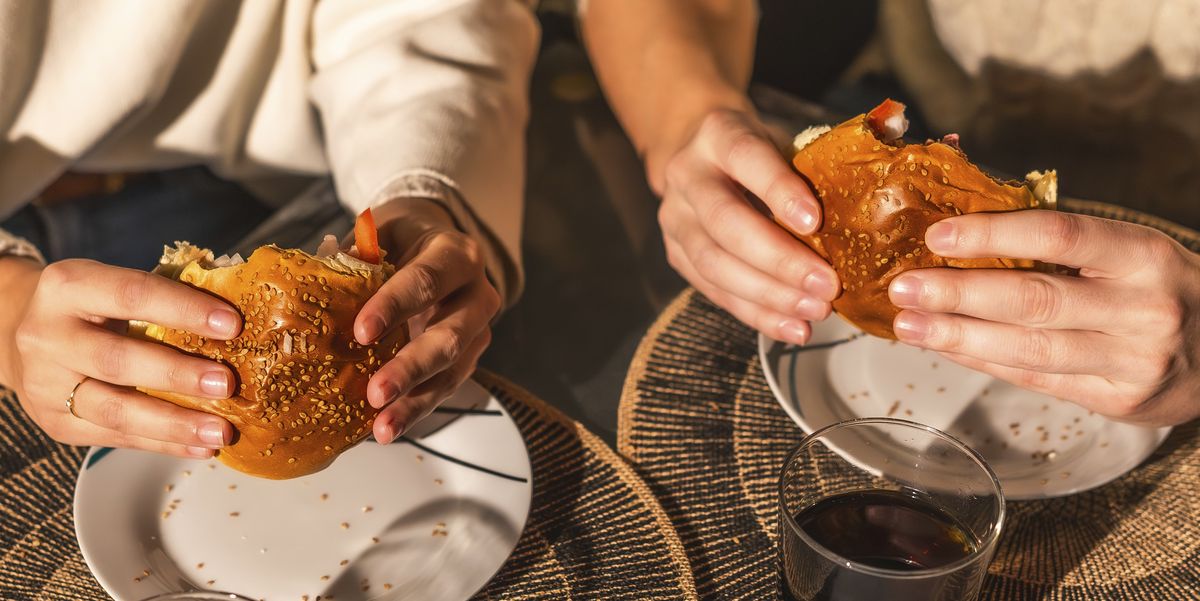Sharing junk food can make couples feel closer (hello, love languages: fries edition).Experts say it’s all about shared dopamine hits, not deep emotional bonding.While it can bring short-term comfort, this coping mechanism doesn’t support long-term relationship health.
Most people would assume that there aren’t many benefits to eating junk food… aside from the fact that it tastes fantastic. And while it’s typically loaded with artificial ingredients and not-so-great for your health, new research suggests there might be one surprising perk: it could actually bring couples closer together—at least in the short term.
A recent study found that couples who shared “problematic behavior” like eating junk food, being inactive, or smoking reported feeling closer and more satisfied in their relationships compared to couples who participated in healthier activities together. The catch? Those feel-good vibes were only reported in the short term.
Now, before you bust out the chips and queue up another Netflix and chill marathon, I spoke to a clinical therapist to get deeper insight into the study’s findings.
“I see this as highlighting a common human truth: shared experience builds connection, says Nick Sharp, MA, LPCC, GED. “But the quality of that experience matters greatly for long-term relationships and individual health.”
Related Story
So what does that mean in practice? According to Sharp, activities like junk food binges trigger heavy dopamine responses with little meaningful connection. “They create a sense of connection through shared reward, but they don’t build true emotional attunement, regulation, or depth,” he explains.
Here’s how it works: Eating high-fat, high-sugar foods stimulates dopamine (aka the feel-good brain chemical linked to pleasure and reward). Add in the presence of a loved one, and you also get a hit of oxytocin—the bonding hormone tied to attachment and closeness. “Essentially, couples are combining two powerful neurochemical responses: dopamine from instant gratification, and oxytocin from relational bonding,” Sharp says.
But that dopamine-driven connection is conditional and fleeting. “It feels good, but it’s dependent on the activity,” he notes. So while splitting a pizza and zoning out together might feel like quality time, it doesn’t always translate to the kind of emotional bond that sustains long-term relationship satisfaction.
While the study is a helpful reminder that connection matters, “if we repeatedly associate closeness with passive or harmful behaviors, we risk building fragile connections based on short-term rewards, potentially compromising both relational and physical health,” Sharp explains.
The findings did show that couples who engaged in these unhealthy activities together felt happier and closer—but only in the short term.
The study also suggested that couples may use these behaviors as a coping mechanism to relieve stress or “reduce negative affect.” In other words, sharing junk food might be less about bonding and more about avoiding conflict or distracting from tension. And while that shared indulgence can bring temporary comfort, it may come at the expense of long-term happiness.
More On Food & Mental Health

